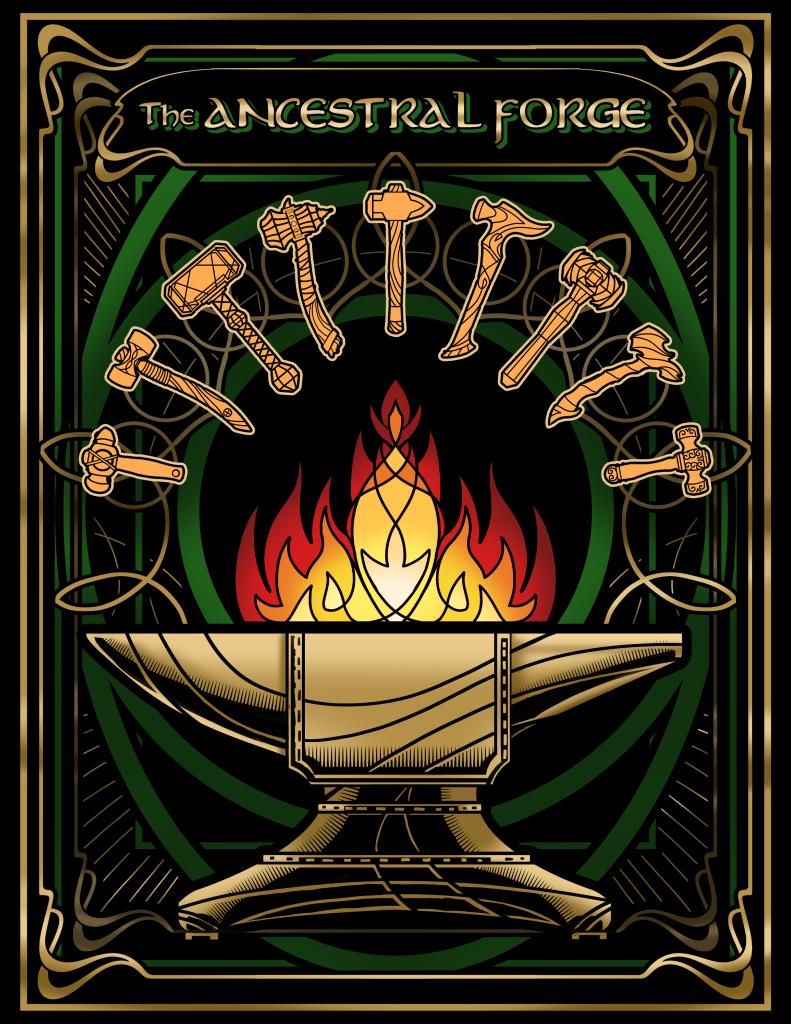D&D 5e: Parry Everything With The Defensive Duelist Feat

D&D 5e: Parry Everything With The Defensive Duelist Feat
SOURCE: Player’s Handbook
Rating the Benefits of Defensive Duelist
Benefit #1 –
After being hit by a melee attack, a creature wielding a finesse weapon can spend their reaction to add their proficiency bonus to their AC, for that attack roll
Proficiency scales from +2 to +6, making this a solid buff to your defense that has no limits on daily use. A character with this feat and no other reactions could realistically use this in every combat round they participate in.

Mechanics and Requirements
Understanding How It Functions
Defensive Duelist is a surprisingly simple feat to explain.
When your character is hit by an attack and wielding a weapon that has the Finesse quality, they can choose to spend their once-per-round reaction to activate this feat. Reactions come back at the start of a character’s turn. There are currently no ways to take more than one reaction, so this ability will only ever be a once-in-a-round thing.
When used, Defensive Duelist gives a character a bonus to their AC equal to their proficiency modifier, against that single attack. This can cause the attack to miss, and deal no damage.
Proficiency bonus scales up as a character levels. It starts at +2, which is already a respectable boost to AC, and finishes at +6 when a character hits level 17. For many characters, most of their adventuring career will be spent with a bonus of +3 or +4.
One great thing about the feat is that there are no restrictions on daily uses or other resources. As long as you have your reaction and you’re wielding an appropriate weapon, you can use the ability.
In short, Defensive Duelist lets a character spend their reaction to potentially turn an attack that hit them into one that misses.
Defensive abilities and GM dice rolling
While we’re talking about Defensive Duelist, we need to touch on open rolls.
The value of this feat shoots upwards if your GM rolls their dice openly, or communicates information that lets their players know how close a monster’s hit roll was to a character’s AC.
Put simply, with closed or hidden rolls, if a monster can attack twice and its first attack hits you, your GM will simply say “It hit you.” You have no information on whether it beat your AC by 1, where Defensive Duelist would matter, or by 9, where using the ability would be a waste.
Using the ability on the first attack also prevents a character from using it on any further attacks, because of the one reaction per round limit.
If instead your GM is open and clear with what they roll or lets the party know the results with comments like “the attack barely clears your shield before hitting you” then Defensive Duelist is only going to be used when it denies an enemy’s attack completely and prevents the damage.
When to take Defensive Duelist
One of the biggest issues with the Defensive Duelist feat is opportunity cost.
Taking a feat costs an ASI, and the Defensive Duelist feat is only really useful for characters who are stacking Dex because it needs finesse weapons to function.
That means any character considering this feat has to balance its benefits against +2 to Dex, which will increase their Dexterity bonus by 1.
Again, the Defensive Duelist feat allows a character to boost their AC once per round by between 2 and 6, but an average of 3 to 4, as a reaction.
For most characters, +1 to their Dex bonus works out as:
- A permanent +1 bonus to AC, making every attack that targets them less likely to hit
- +1 to hit rolls and damage rolls on all attacks the character makes
- +1 to Reflex saves
- +1 to a bunch of useful skills
Laid out so clearly, it’s easy to see why most builds choose to max their Dex before picking up this feat.
Key Stats
In order to take Defensive Duelist, a character’s Dexterity score must be at least 13.
The Defensive Duelist feat doesn’t boost a character’s stats and realistically requires as high a Dexterity as possible to function. (Though this isn’t strictly true. More on this further down the guide.)
Ideal Characters for Defensive Duelist
Top Classes
Blades Bard – The Blade Bard’s core class ability allows them to boost their AC by adding Inspiration to the score. Defensive Duelist stacks with this, allowing for massive spikes in AC against the few attacks that might still hit.
It also helps that every weapon the Blade is proficient in uses Dex, and has the finesse quality, so there’s that, too.
Fighter – The Fighter class already can turn itself into a massive tank by investing in defense. Taking Defensive Duelist and some of the defensive fighting styles can build into an obnoxious brick wall.
The core principle is this. Stack AC as high as possible. If enemies attack you, spend the reaction to boost your AC further. If they attack an ally, spend the same reaction to activate the Protection fighting style and give that attack disadvantage. Create no good targets.
Monk – The core class chassis of the Monk is average in HP and AC, gaining more of its defenses from abilities.
As long as the character is wielding a finesse weapon (shortswords are the best option) then a Monk with this feat can Deflect ranged attacks, and Defensive Duelist melee attacks, making them much more resilient against both.
Ranger – Rangers tend to have very little to do with their reactions, and traditionally love weapons with the finesse tag.
This means, for melee Rangers, the Defensive Duelist feat is a surprisingly good pick up, as long as they can fit it into their build without compromising stat gains.
Race or Subrace Choices
Variant Human – +2 to AC is a huge benefit in the early levels, and many characters don’t have ways to spend their reactions until they level. Grabbing Defensive Duelist from level 1 makes the feat much better.
Warforged – Why yes, a permanent +1 to AC to add to your other AC buffs is very nice.
Combos, Tactics, and Synergies
Complementary Feats
Sentinel – On the turns where enemies attack your allies, swing back at them using your reaction. Plus subsidiary benefits against enemies that try and move outside of your threatened squares.
Magic Initiate – Grab a great defensive spell like Shield, Shield of Faith, or Absorb Elements, plus a pair of cantrips for utility and ranged offense.
Spells that Synergize
Shield of Faith – +2 to AC is a fantastic buff on any character, especially the tank. For best results, have someone else cast this on you, so concentration doesn’t drop at a critical moment.
Absorb Elements – Defensive Duelist does nothing against big elemental blasts like Fireball or a Dragon’s breath weapon. Absorb Elements cuts damage from sources like these in half, and adds a little bonus damage on your next attack as a sweet little bonus.
Blur – Adding disadvantage to hit an already tough build only makes it that much more effective.
Strategies for Maximizing Defensive Duelist Effectiveness
Stack AC
In 5e, when creating a build, it’s generally better to focus on being exceptionally good at one or two things. A character investing in defenses should keep doing so, as every point of AC scales harder than the last one.
Consider. An appropriately built character could easily have an AC of 23 at level 5. Adding your proficiency bonus using Defensive Duelist pushes this to 26.
That means a monster with an attack bonus of +5 literally cannot hit them unless they crit with a natural 20.
Static AC bonuses are hard to find. Dexterity bonus, armor, and shields, especially magic items, are the largest contributors to a character’s AC.
Static bonuses are harder to find. Racial traits, (Warforged, Tortle.) Class abilities, (Forge Cleric, Armorer Artificer) and fighting styles (Defence) are common methods of grabbing AC bonuses.
Defensive Duelist and Rogues
While on paper this feat looks like it’s a great match for a Rogue, it’s actually a trap feat.
At level 5, the Rogue gains another defensive bonus that uses the same Reaction trigger as Defensive Duelist.
Uncanny Dodge
The uncanny dodge ability triggers after an attack hits, and gives the character resistance against that attack. This halves the damage taken, no questions, nothing else needed.
Compared to +3 or +4 to AC, that’s a significant defensive buff. Rogues tend to have middling AC and average HP. That means in times when enemies catch the class out and start piling on attacks, you’re going to get hit, and it’s much better long term to mitigate the damage taken.
We’ll also refer you back to the top of the guide, where we go over opportunity costs. The Rogue as a class needs high Dexterity to function properly. Any optimized build should be looking to max their Dex score as quickly as possible, and feats that are maybe’s, or nice to have’s, really slow down overall progression.
Does the Defensive Duelist feat require high Dexterity?
Actually, no.
Amusingly, the way the feat is worded doesn’t stop characters who have bare minimum Dexterity from using it, as the AC bonus is based on y our proficiency bonus, which scales with level.
The feat only needs a character to be wielding a weapon with the finesse trait. That’s it. This means the hulking Barbarian with 20 Str and 13 Dex can hold a tiny dagger in his off-hand, then use it to parry the Dragon’s gaping maw as it tries to bite them in half. It’s the literal personification of “Parry this, you filthy casual.”
Final Thoughts on Defensive Duelist
Defensive Duelist isn’t a bad feat. The problem is that so many classes and feats offer better ways to spend their reactions, both offensively and defensively.
What we’re saying is this. If your build doesn’t have a good way to regularly spend its reaction, or your role is a Dex-based frontline warrior and you need a way to boost AC at critical moments, by all means, pick up this feat. It’s decent enough at what it does. Just don’t expect wonders.








